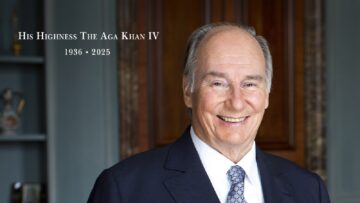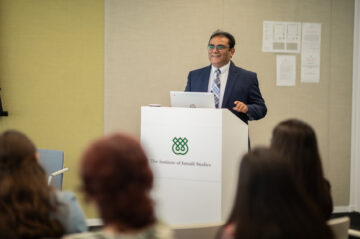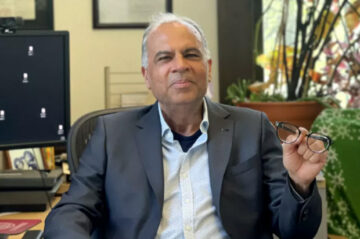The first modern reference work on the Muslim world of a significant nature to emerge in Europe was The Encyclopaedia of Islam: A Dictionary of the Geography, Ethnography and Biography of Muhammadan Peoples (EI), published between 1913 and 1936. Made available in English, French and German, EI consisted of 9,000 entries, ranging from 50 to 50,000 words, in four volumes. Due to major changes in the political world order, which had begun to take shape in the early 20th century, the Encyclopaedia soon became outdated as an up-to-date reference on the Muslim world.
In 1960, the first volume of The Encyclopaedia of Islam: New Edition (EI2) was published. EI2 updated and built upon new scholarship in Islamic Studies, but maintained, for the most part, the orientalist scholarship of the first edition. Its emphasis and perspectives reflected traditions of western, unbalanced and often Arabo-Sunni centric views of Muslims, often marginalizing other Muslim heritages. Completed in 2002, it remains an important first point of reference for Islamic Studies scholars and students.
The Great Islamic Encyclopedia project, based in Tehran and founded in March 1983, is an ambitious programme to produce a comprehensive and balanced reference of the Muslim world, in all its intellectual and cultural diversity, integrating the totality of contemporary scholarship from all over the world. The Centre that guides the project consists of a staff of 200 dedicated scholars and a library of more than 400,000 items, including several thousand manuscripts and archival documents of historical importance. To date, 11 volumes, each of about 800 double-columned pages, have been published. The first ten are dedicated to entries beginning with alef, the first letter of the Persian and Arabic alphabets.
The Centre has also translated the first five volumes of this resource into Arabic and has partnered with The Institute of Ismaili Studies to develop an English version, the first volume of which is expected to be available in 2005. In addition to the translation, the Institute will also contribute new entries to the volume and, where necessary, update bibliographies that accompany each article. An Advisory Board under the general direction of Professor Wilferd Madelung, Senior Research Fellow at the IIS and Professor Emeritus at Oxford University, will guide the English version.
It is hoped that once the Encyclopedia is complete, it will help pave the way for a more balanced approach to Islamic Studies. The Center for the Great Islamic Encyclopedia is also developing an Encyclopedia of Islamic Jurisprudence and a comprehensive history of Iran.






